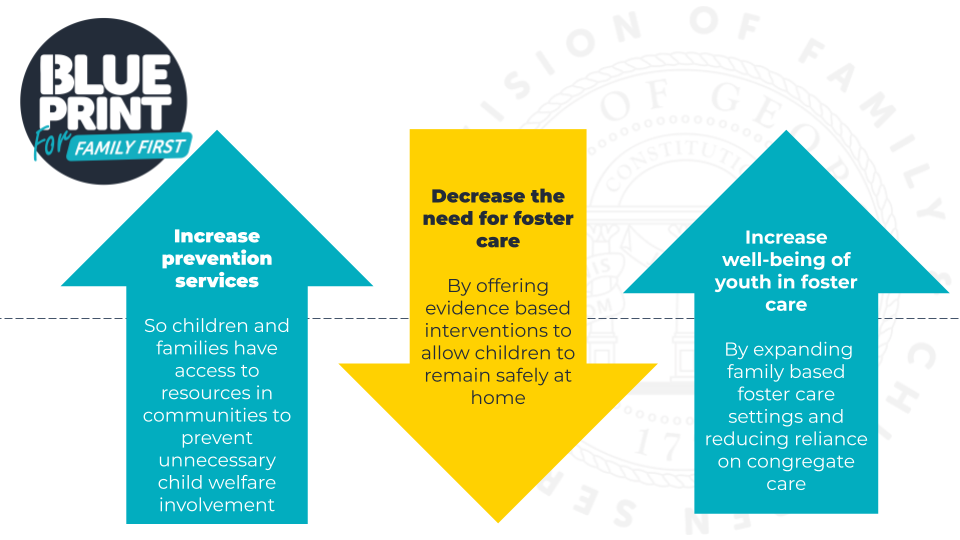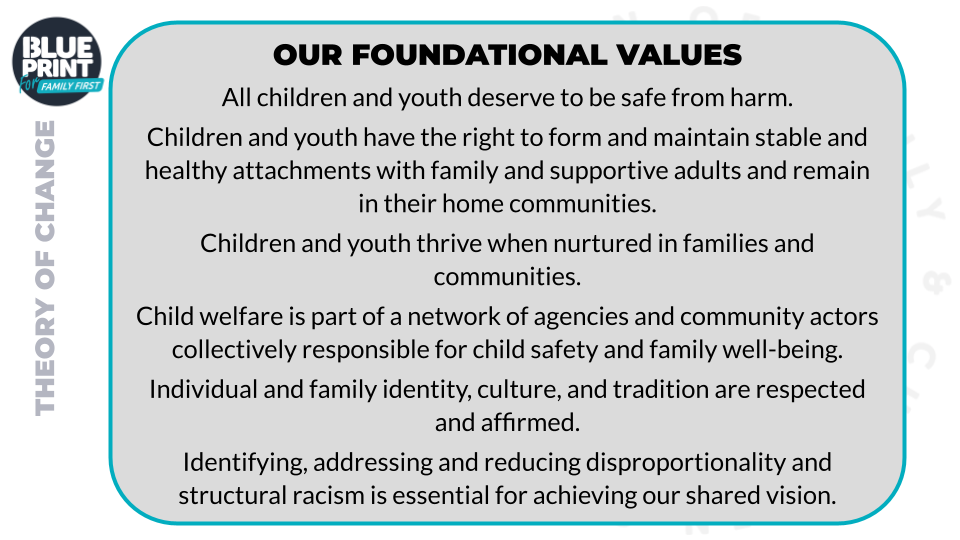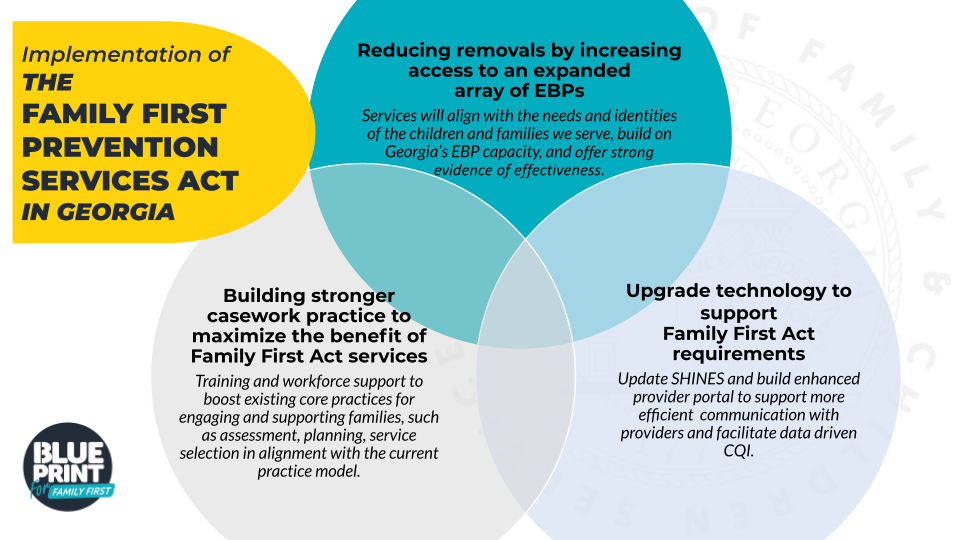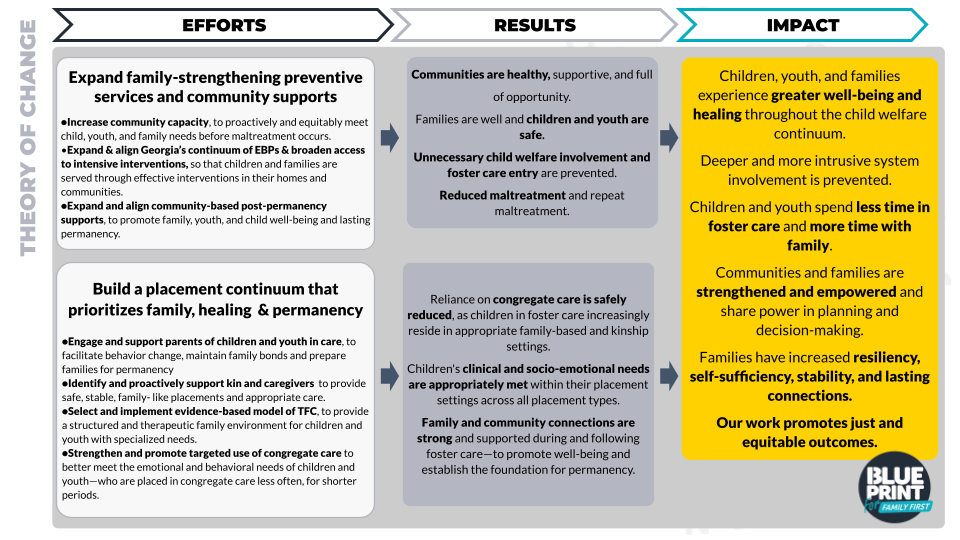
Theory of Change
THEORY OF CHANGE
The long-term results Georgia expects from Blueprint for Family First are clear: Strong families, safe children. Our Theory of Change explains how we’ll get there.

INCREASE PREVENTION SERVICES
So children and families have access to resources in communities to prevent unnecessary child welfare involvement.
DECREASE THE NEED FOR FOSTER CARE
By offering evidence based interventions to allow children to remain safely at home.
INCREASE WELL-BEING OF YOUTH IN FOSTER CARE
By expanding family based foster care settings and reducing reliance on congregate care.
VALUES
Blueprint for Family First is driven by six core values.

-
All children and youth deserve to be safe from harm.
-
Children and youth have the right to form and maintain stable and healthy attachments with family and supportive adults and remain in their home communities.
-
Children and youth thrive when nurtured in families and communities.
-
Child welfare is part of a network of agencies and community actors collectively responsible for child safety and family well-being.
-
Individual and family identity, culture, and tradition are respected and affirmed.
-
Identifying, addressing and reducing disproportionality and structural racism is essential for achieving our shared vision.
IN CONTEXT
Blueprint for Family First encompasses implementation of the Family First Prevention Services Act as well as other DFCS work, including:

REDUCING REMOVALS BY INCREASING ACCESS TO AN EXPANDED ARRAY OF EVIDENCE-BASED PRACTICES (EBP)
Services will align with the needs and identities of the children and families we serve, build on Georgia’s EBP capacity, and offer strong evidence of effectiveness.
BUILDING STRONGER CASEWORK PRACTICE TO MAXIMIZE THE BENEFIT OF FAMILY FIRST ACT SERVICES
Training and workforce support to boost existing core practices for engaging and supporting families, such as assessment, planning, service selection in alignment with the current practice model.
UPGRADE TECHNOLOGY TO SUPPORT FAMILY FIRST ACT REQUIREMENTS
Update SHINES and build enhanced provider portal to support more efficient communication with providers and facilitate data driven continuous quality improvement (CQI).
THE DETAILS

Thank you to our stakeholders and Chapin Hall at The University of Chicago for their assistance in developing this Theory of Change.